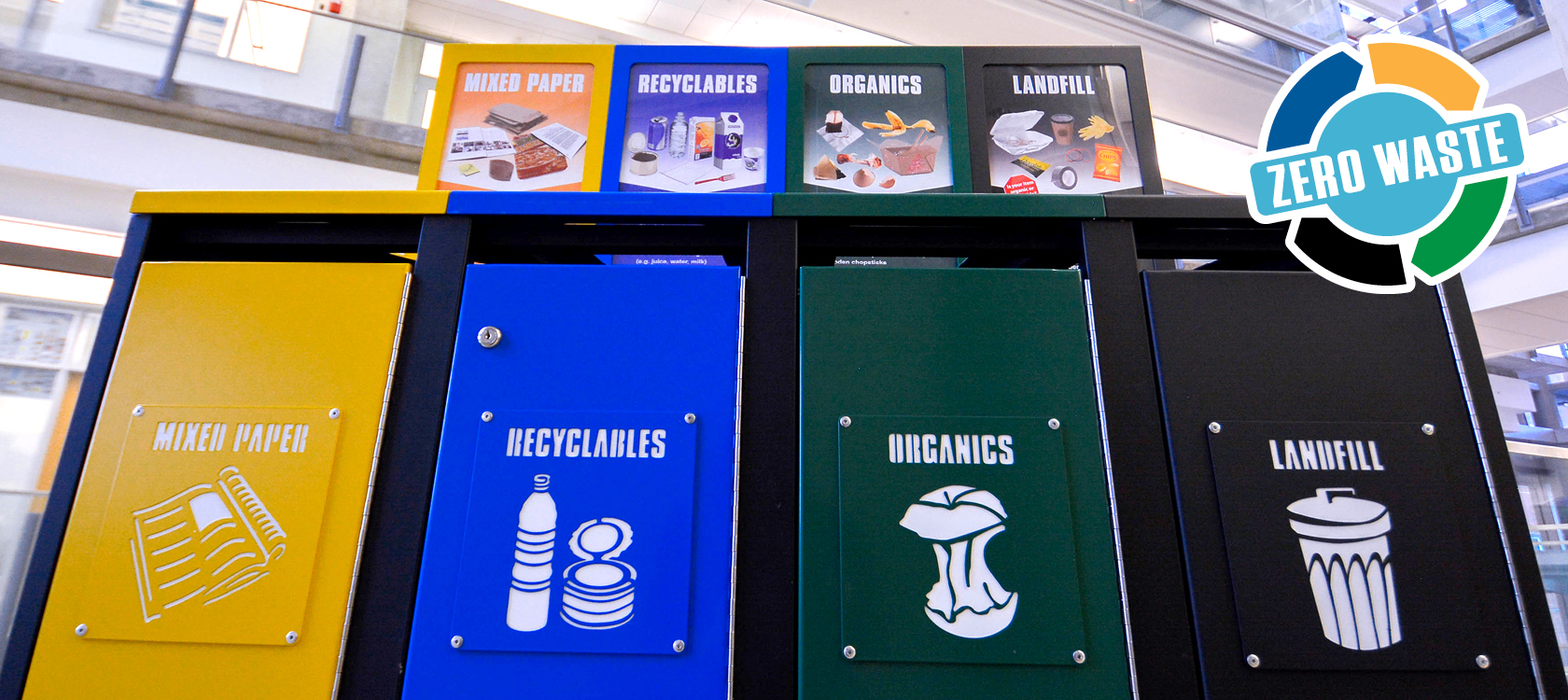Waste Diversion and Recycling

The University of Alberta is committed to taking a Zero Waste approach to reduce the amount of waste created and sent to landfills at the institution.
How to Recycle
Not sure what goes where? From batteries and electronics to cardboard and plastic, we have a solution for you to keep it out of the landfill.
Plan a Zero Waste Event
A few small changes make a big difference when it comes to reducing your event's environmental impact. Here are our tips to help you plan a zero waste event.
Order Waste Sorting Bins
Contribute to sustainability on campus by renting Zero Waste bins for your next university event. Learn what type of bins you need and how to place your order.
Zero Waste Stations
Zero Waste Stations can be found all across University of Alberta, such as the station pictured above in the Centennial Centre for Interdisciplinary Science.
See a complete list of Zero Waste Program buildings on campus.
Waste Diversion
Waste diversion is the process of keeping waste away from landfills through reducing, reusing, recycling, anaerobic digestion and/or composting. By diverting waste away from the landfill, the university:
- Reduces its greenhouse gas emissions
- Reduces the demand on virgin materials to produce new products
- Avoids contributing to other potentially harmful environmental and social impacts of landfills
The U of A's goal is to divert 90% of our waste from landfills. We track the materials that we collect so we know how close we are to our goal.
The Waste Collected by Material Stream chart displays the amounts and types of waste collected on our campuses each year. It includes common recyclables (e.g. mixed paper, plastics, light metals, bottles and cans), organics (e.g. food scraps, food waste, yard waste) and materials that are sent to the landfill. It also reflects items donated during events like Residence Eco Move Out and specialty recycling streams like electronics, pens, batteries, light bulbs, pallets and kitchen grease.
By reducing and sorting your waste correctly on campus you are helping us get closer to our 90% diversion goal. Explore our Zero Waste Dashboard to learn more.
Did you know?
The City of Edmonton opened a new anaerobic digestion facility in 2021 that produces energy and compost from organic waste (food scraps and other compostable materials). The university was an early partner in this project and this is where the university sends most of its organics*. Each tonne of organics diverted from landfill will mitigate approximately one tonne of GHG emissions.
*Augustana Campus’ organics go to a composting facility in Camrose.